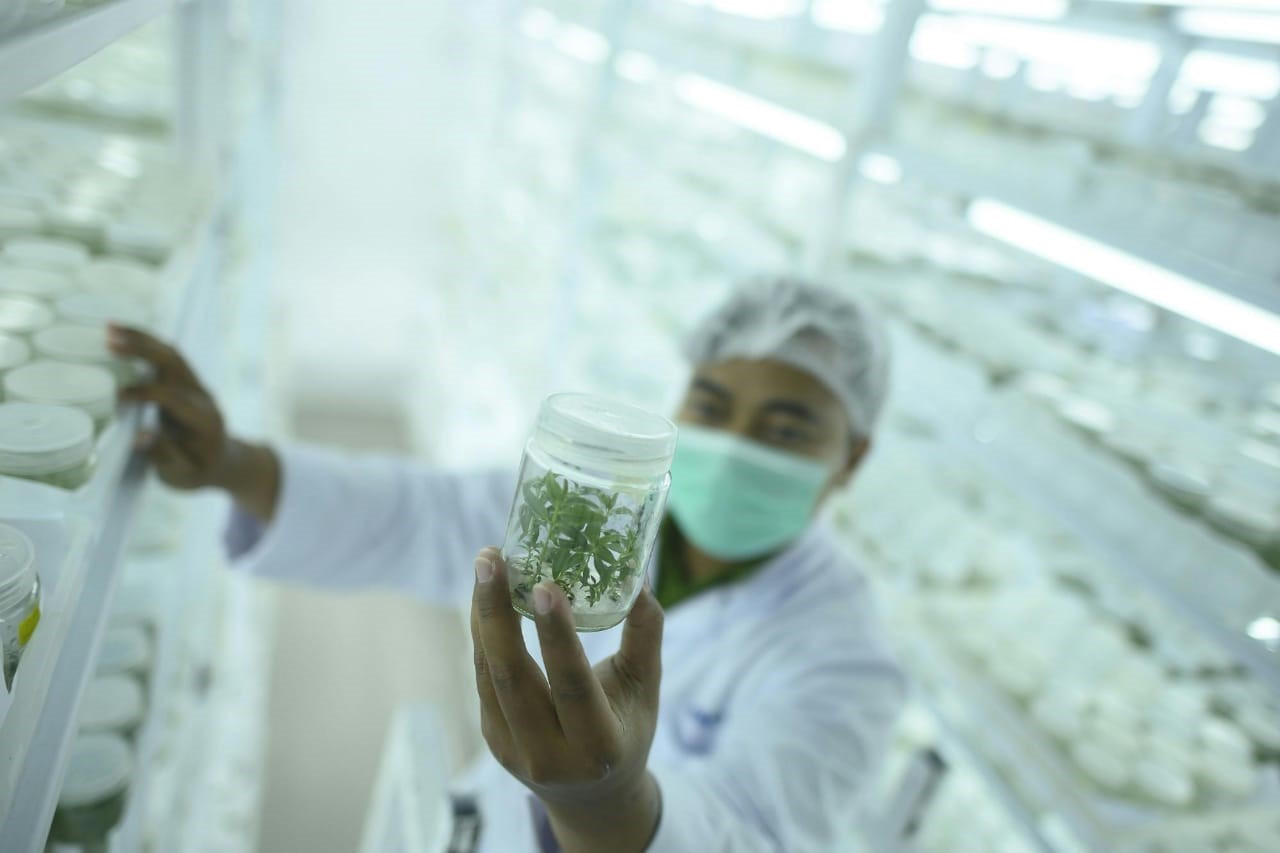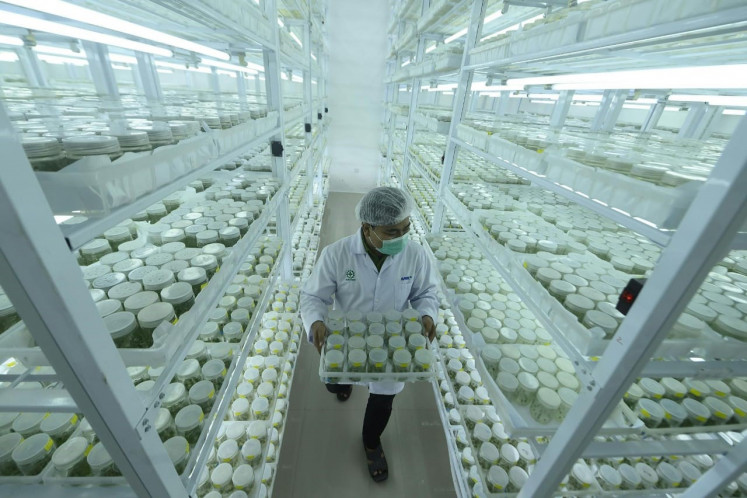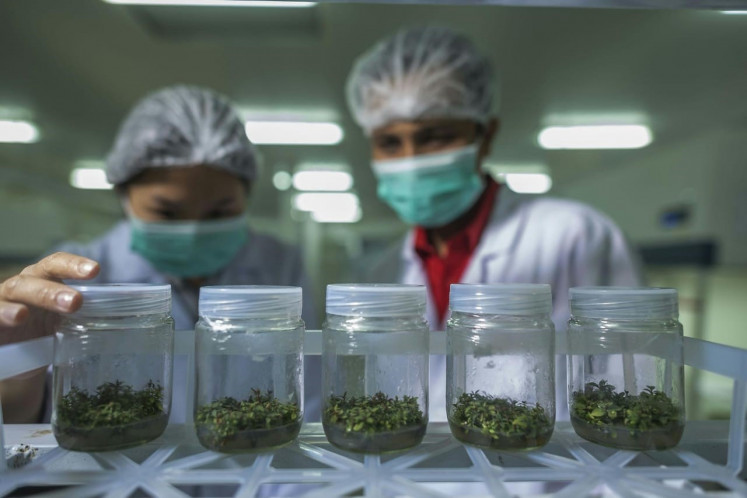Popular Reads
Top Results
Can't find what you're looking for?
View all search resultsPopular Reads
Top Results
Can't find what you're looking for?
View all search resultsKerinci Tissue Culture: Meeting sustainability demands with innovative technology
Change text size
Gift Premium Articles
to Anyone
I
n today's digital age, wood products play an indispensable role in our daily lives. They are used in various essential items, ranging from food packaging, tissues, and shopping bags to books, contracts, and tickets.
At the same time, businesses face increasing pressure to meet the growing demand for sustainable solutions. According to a recent study by NielsenIQ, 78 percent of consumers consider leading a sustainable lifestyle important, with 61 percent acknowledging the adverse effects of environmental issues on their present and future health.
APRIL Group, a leading sustainable pulp and paper producer in Indonesia, is committed to implementing sustainable practices and harnessing technology as part of the solution. Increasing productivity is one of the main targets in the Thriving Landscape pillar of APRIL2030. As part of their commitment, APRIL Group goes a step further by investing in landscape conservation efforts until 2030. They support their 1-for-1 goals by investing US$1 per ton of plantation fiber harvested, ensuring that the benefits of tissue culture contribute sustainable forest plantations for Indonesia and the world.
At the forefront of their technological advancements is plant tissue culture, specifically the innovative Kerinci Tissue Culture (KTC) lab situated in Pangkalan Kerinci, Riau Province. The Kerinci Tissue Culture method aligns with APRIL Group's primary target in APRIL2030. One of their goals is to achieve a 50 percent increase in plantation fiber productivity through an intensification approach.
"To minimize the land required to meet production demands, we are investing in silviculture research and technology innovation to enhance plantation fiber productivity by 50 percent through improvements in silviculture practices, genetics, and soil nutrition," stated Sihol Aritonang, President Director of Riau Andalan Pulp and Paper (RAPP), the operating arm of APRIL Group.
The Kerinci Tissue Culture lab, which required a $5 million investment, houses 16 growth chambers operated by more than 150 skilled technicians. Its primary objective is to annually produce approximately 43 million high-quality, disease-resistant Eucalyptus and Acacia tissue-cultured plantlets for APRIL's plantation estates. This is 7 million more plant per year that when Kerinci Tissue Culture lab was inaugurated in 2019. This increase had been achieved as consequence of the continuous improvement by a team of scientist and experts over the last years. Through the power of micro-propagation in plant tissue culture, APRIL Group achieves enhanced productivity without expanding their environmental footprint.
Advantages of Tissue Culture
Plant tissue culture, a controlled cultivation method in an artificial environment, has revolutionized plant propagation, bringing numerous benefits to the field. Tissue culture allows an efficient increasing number of plants produced in a shorter timeframe and reduced surface. Compared to conventional propagation methods, tissue culture allows for the production of significantly more plant material while utilizing much less space.
Thanks to this controlled approach, APRIL Group is able to produce plants consistently year-round, regardless of weather conditions. Moreover, tissue-cultured plants are safeguarded against pests and diseases, ensuring their overall health and quality.
At APRIL Group, the tissue culture process begins when a team of scientists carefully selects high valuable trees, with the highest growth, best fiber properties and resistance to pests and diseases. From those high valuables trees, part of leaves or shoots are collected and send to the Tissue Culture Lab where progress through various stages, starting with the in vitro aseptic establishment stage (Initiation) where small plant are produced from the leaves or shoots.
After initiation, the small plants are utilized to generate millions of individual plantlets in the multiplication stage. The most promising plants then proceed to the elongation/rooting stage, where they develop into plantlets. Finally, the plantlets that pass the strict quality control are acclimatized and hardened in the nursery before being planted to the field.
The benefits of plant tissue culture go beyond financial advantages resulting from increased productivity and improved product quality. By achieving more with less, micro-propagation in plant tissue culture contributes to a more sustainable approach, where the space and resources required for production are carefully balanced with the final product.













